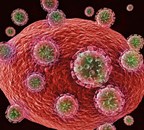BASHH Statement: Continued fall in HIV transmission represents welcome progress, although much more remains to be done
16 January 2020
(Last updated: 27 Nov 2023 09:16)

The British Association for Sexual Health and HIV (BASHH) welcomes a new report released by Public Health England (PHE) today showing that HIV diagnoses in the UK have continued to fall, although emphasise the need for further action if the goal of eliminating the disease by 2030 is to be achieved.New PHE data shows that there were 4,453 new HIV diagnoses in the UK in 2018, representing a continued rapid reduction since the peak of new HIV diagnoses recorded in 2014 (4,453). The drop in new transmission rates has been particularly pronounced among gay and bisexual men (GBM), with diagnoses falling from 3,480 in 2014 to 2,250 in 2018 – a drop of 35%. The report also demonstrates the continued progress made in reducing the number of new HIV diagnoses acquired heterosexually, with numbers almost halving in the past decade (from 3,400 in 2009 to 1,940 in 2018). The biggest reductions in new diagnoses have been seen in young London residents (25-34 years), people of black African ethnicity and those born abroad. Despite welcome progress, there remain clear areas which still need to be addressed if we are to successfully meet the goal of eliminating HIV by 2030. There are twice as many people with undiagnosed infection outside of London, whilst the overall proportion of late diagnoses is 43% - with rates especially high in white heterosexual men, black African men and those over the age of 50. Urgent public health campaigns are needed for these groups to help address clear health inequalities. Furthermore, whilst there has been a slight increase in HIV testing with primary care (testing rates increased from 129 tests per 100,000 in 2016 to 156 tests per 100,000 in 2018 in extremely high prevalence areas), the overall level of testing in this part of the health system remains well below where it needs to be if further reductions are to be achieved.Commenting on the report findings, Dr John McSorley, President of BASHH said:
“BASHH welcomes the latest data as evidence that we are making progress in our common goal to end new HIV infections across all four nations of the UK. Whilst this progress is encouraging, it remains true that a single preventable HIV infection is “one too many”, especially when we have all the tools and interventions to eliminate HIV at our disposal already. The progress that has been made in certain populations in specific parts of the country now needs to be delivered for all. To achieve this, we need to see delivery of universal HIV testing across the healthcare system and the provision of PrEP for all those who need it, as soon as possible. Investment must also be made in our underfunded and overstretched sexual health services, to ensure the essential wraparound care for those with unmet sexual health needs and those living with HIV is easily accessible. Doing so will save both lives and future costs for the NHS. BASHH look forward to playing its part in supporting these ambitions and working towards the elimination of new HIV transmissions in England and beyond.”